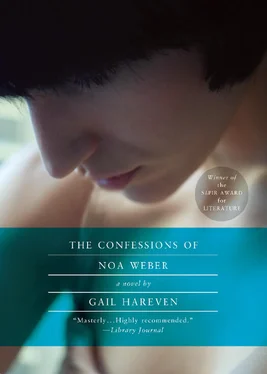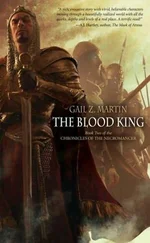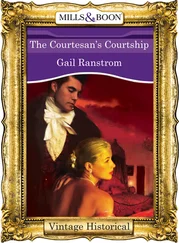So what could Noa Weber do? What could I do? I could have picked up my peacock’s tail and returned to my parents’ home, married or single, they would have taken me back. I could have gone to Grandma Dora on the kibbutz. I could have gone to the recruiting center and volunteered to serve in the army even after I was married. I could have “confronted Alek and discussed the situation openly,” as the wise advisors in the agony columns in the newspapers always say, or, in the same spirit, I could have taken myself to a psychologist who would “help me to untie the knot.” I could have and could have and could have, but the problem of course is that I couldn’t. That is to say that from the chemical point of view there was simply no possibility of my detaching myself from him. Just as there was no possibility for me to change my soul, or to cut myself into pieces. I loved him. In other words, he had infiltrated my very depths and then spread through all my cells, and changed my being until I was no longer mistress of my love. It wasn’t “my” love. It didn’t belong to me, I belonged to it and was ruled by it. Or perhaps I belonged to him and was ruled by him. I don’t know.
I’m not denying all responsibility, but I feel I can definitely claim diminished responsibility; and so in the end I did the only thing I could do, which was to efface myself so that my presence wouldn’t be oppressive. Light as the wind, playful as the wind, that is what I tried to be. Soft, pure air, a perfect cirrus cloud floating in the kitchen sky.
It’s easier to describe on the practical level. Alek was and remains a tidy man. I am still untidier than he is, but from the minute he cleared three shelves in the closet for me, I adapted myself to his standards of order and even more so: not a crumb on the chopping board, not a hair in the bathroom sink. Shrewdly I avoided playing the role of the housewife Alek was certainly not interested in, but I did my best to behave like the perfect roommate. When I polished off the cheese I was quick to replace it, when a bulb burned out in the bathroom I refrained from calling him to change it, and I never used up all the hot water, things like that, and looking back I can see that it was all nonsense. I can’t imagine Alek resenting having to change a light bulb, or complaining about the cheese, but nevertheless I was careful.
Beyond all this was the perpetual question of the choreography of our parallel lives. Alek settled into the study, I without a word was given the bedroom, and when Alek closed his door, I closed mine too — so far it was clear. But what am I supposed to do when he’s sitting in the kitchen? Is it a let’s-peel-Noa-an-orange morning, let’s tell her the name of the quartet playing on the radio, improve her mind with a little “Nietzsche, Ivanov, and the Dionysian principle,” and chat to her about romantic triangles in Russian literature? Or is it the beginning of another day when we don’t raise our head from the bed or the book even when the door bell rings? Does he want me frivolous now, passing airy remarks? Is my silent presence acceptable to him now? And at this moment — what? And what about the moment after it? Will it drive him crazy if I move? Open the tap? Chew? Breathe in his den?
Alek was and is a man of expansive gestures, but the gesture with which he opened his home to me was too expansive even for him.
WEDDING
Three people accompanied us from the house: Yoash-Hamida, the ginger-haired Ginsberg, and the revolting Hyman, and at the entrance to the Rabbinate we were joined by the acne-scarred Maoist with another guy I didn’t know, whom Alek apparently didn’t know either.
Until they were ready to marry us, we were all asked to wait in the corridor. Alek, a pale prince, graceful, disdainful, leaned on the doorpost, while Hyman took over one of the offices and conducted all kinds of debates. I remember couples sitting on a bench like patients in a queue at the free clinic, the screaming of a woman outside, all kinds of people passing between us with rapid steps carrying cardboard files, all of them staring at the woman in the white dress: what’s she doing here? Staring at the woman pacing to and fro in a white dress, in other words, me. One man — he sticks in my mind — walked past with floral slippers on his feet.
Money passed from Yoash’s wallet into the drawer of one of the clerks, a note was written, and then we were sent to an empty hall upstairs, to wait for them to prepare the marriage contract and collect ten men for a prayer quorum. Everything registered in my mind in partial pictures, like quick peeks through the blindfold in a game of blindman’s bluff: stacked towers of orange plastic chairs, a glimpse of a blue nylon scroll, which was the rolled-up wedding canopy, the sight of a shoe crushing a cigarette end on yellowing floor tiles. Three people gathered opposite the rabbi next to a table in the corner, crowded, sullen voices asking and answering in the corner, feet receding from the table, a stir spreads through the room, and then a pair of hands take hold of the pole of the canopy as if it were a flag. And all this time I kept my eyes lowered and I didn’t look at Alek, but even without looking at him I knew his location and his movements. A concentrated prince, captive among the hand-wavers.
Two women approached me, neither of them the rabbi’s wife I had met on the day we came to register, two other women. They asked me my name, they asked me pityingly about my family, if I was expecting anyone else to come, and when the rabbi came up to demand the note from the mikveh, they gave him my name in Yiddish, and it was only from their gestures that I understood what they were saying, that the poor girl was pregnant. The arrogance of our group abated, or perhaps it did not penetrate to these kindly, pious women, because their fingers kept touching my shoulders and my hair, as if I were in need. They straightened the neckline of my dress, they smoothed and stretched its folds, they brushed a lock of hair off my forehead, and then with increasing boldness they affectionately kneaded my arms. If we had met in the street the next day, I would not have recognized them, but together they arranged a gauze kerchief on my head, so I would have a wedding veil, they called me “the beautiful bride” and wished — it sounded like a promise — that all would be well.
When the canopy was spread a command was given, and the two women took a firm, final grip on my arms and began to lead me round and round the groom in what felt like a kind of slow torture. “This is so you’ll forget all the others,” one of them breathed warmly into my ear.
Although I’m not tall, they were shorter than I was, actual dwarves, and with every step I was conscious, to the point of gut-twisting revulsion, of the grotesqueness of this circular movement in threesome, of how I disappeared for a few steps, and immediately reappeared in Alek’s view, with no possibility of escape. Straight-backed as a novice model, pulled by the arms, one shoulder drooping and the other raised, unable to even them out, my face distorted, unable to relax my expression. On the next round, here it comes, on the next round I’ll slip past him with nonchalant, jaunty grace, I’ll smile ironically, and again I am under his all-seeing eyes, and everything is even more crooked than before.
In all my life up to then I had attended four or five weddings, no more; the children of my parents’ friends, married on a platform on the lawn opposite the kibbutz dining hall, or in a hotel. For Alek this was his first Jewish wedding, but somehow he succeeded in deciphering the Yiddish-accented “Behold thou art sanctified unto me with this ring” and to repeat the words, and when he repeated them, for a moment I didn’t recognize his voice, and it seemed to me that somebody else was repeating them so that he would understand. One of the strangers present in the room.
Читать дальше












